Reddit's trying out another way to encourage users to engage and interact.
* This article was originally published here
Make money online fast using proven strategies, courses and trainings. Best recommended product reviews, affiliate marketing tips and resources.
Reddit's trying out another way to encourage users to engage and interact.
An easier way to source and utilize UGC on IG.
You now have more options to customize your Meta Avatar, if that's something you're interested in.
As a marketing and sales coach, you are your product.
The value you can provide to your clients is only as high as the skills you yourself hold — and no one's perfect.
Perhaps you've hit some roadblocks getting leadership bought into your strategies. Or maybe you just can't seem to get your clients to follow through consistently.
So, if you're looking to improve your client's results and grow your business, it's wise to look inward and invest in professional development.
Knowing your stuff when it comes to marketing and sales is a given, but where else should you try to level up?
While every client-coach relationship is different, there are certain skills that have the power to transform good coaches into great ones and are essential to success in the role.
These skills are not easy to master, but as you hone them, your coaching business will thrive — and so will your clients.
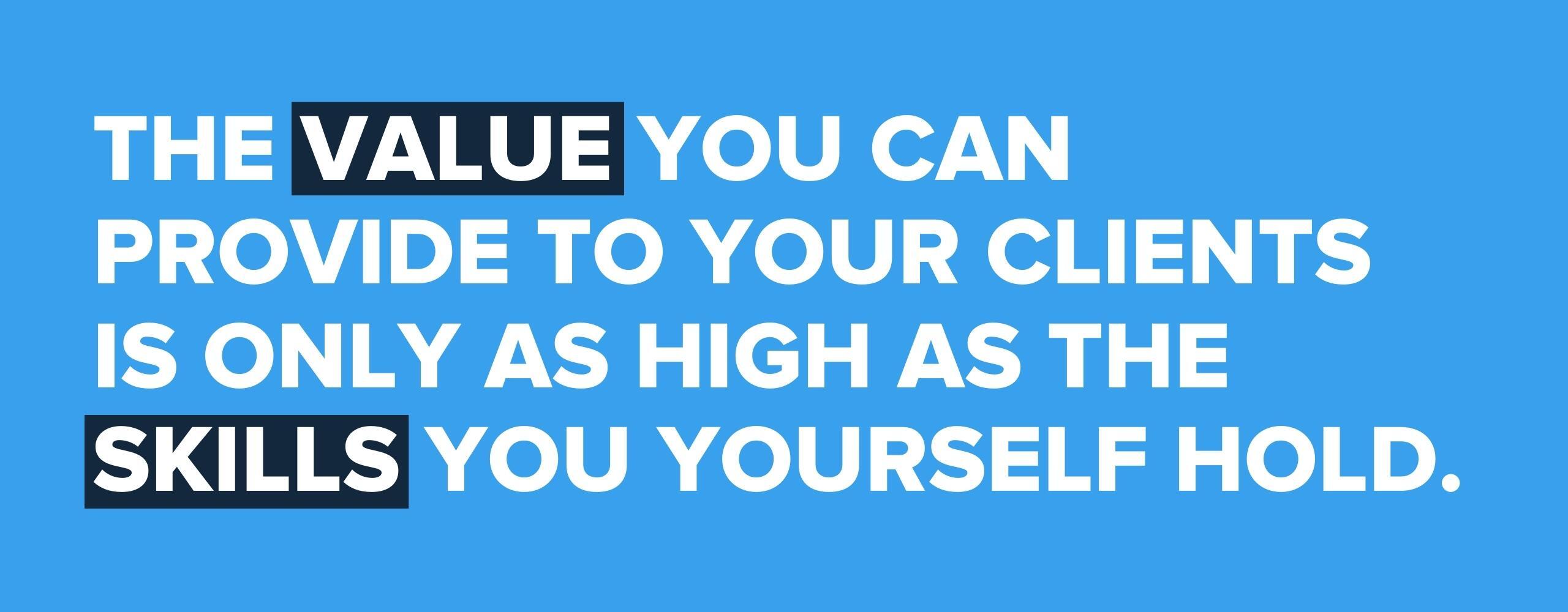
It’s no secret that skilled marketing coaches need to be exceptional communicators, which is why this one comes first. Without expert-level communication, you simply can't be an effective coach.
While you might already be strong in this area, focused practice can help maintain it.
As a coach, you want to be as clear and concise as possible. You want clients to be able to understand your guidance and not be distracted by unnecessary details.
When coaches and consultants are too wordy or talk in circles around a topic, it can sound like they don’t entirely know what they need to say.
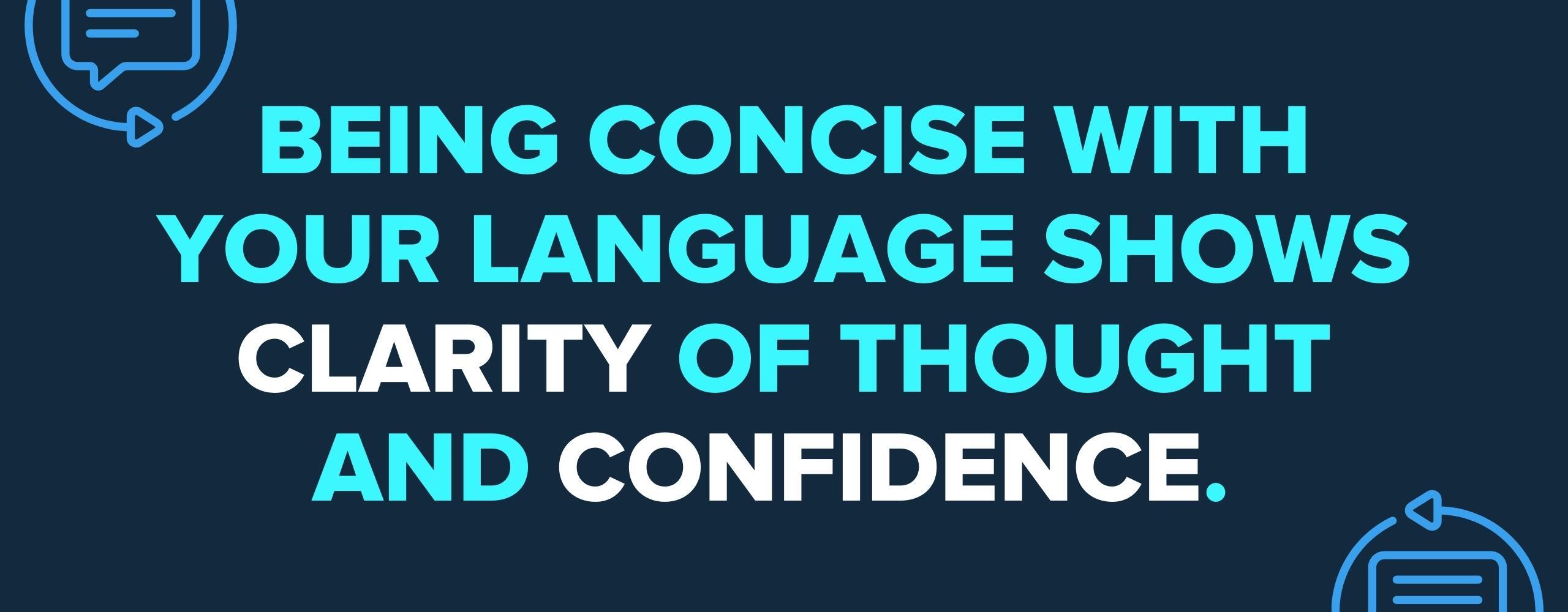
This could make a client lose trust in your ability to lead them or think you don’t really know what you’re talking about.
Being concise with your language shows clarity of thought and confidence.
To improve this skill, start by writing out what you want to say to a client in bullet points. Record yourself practicing delivering these points as you would directly to the client.
Then, listen to the recording, taking note of filler words and phrases (i.e. um, like, in order to, you know) that you can cut.
Also, pay attention to any redundancy or long-winded examples, which tend to slip into speech and can make messages unnecessarily long.
You can also try recording and reviewing your client sessions to find these areas for improvement as well.
With your notes in hand, run through similar scenarios again until they are as streamlined as possible.
If you practice shortening what you say consistently, it eventually becomes second nature and you’ll be speaking with clarity more often.
Your clients hire you to provide feedback and direction, which will often mean difficult conversations.
While some coaches and consultants aim to please their clients, the most effective ones are able to help their clients understand feedback that might be tough to hear.
Let's say one of your clients needs to fire an associate or you found their performance during an activity was sub-par. As a coach, you can't hold back. You need to share this feedback for them to improve.
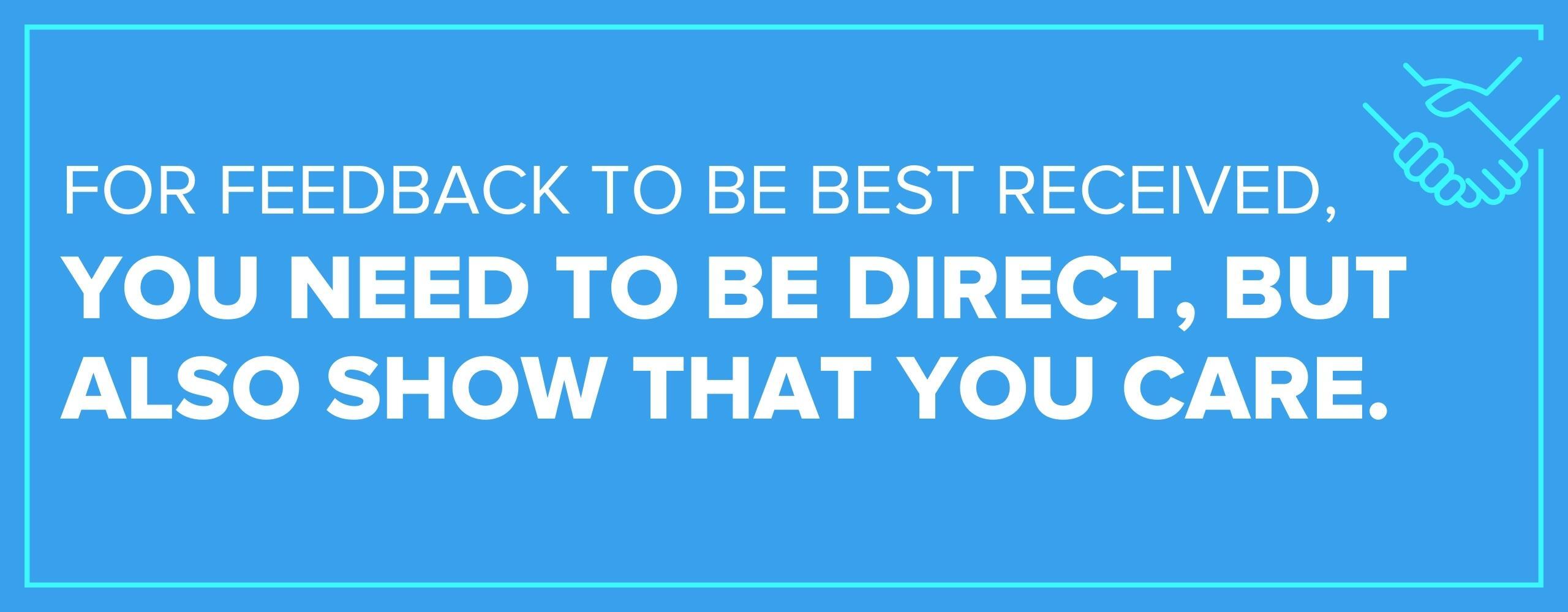
However, for feedback to be best received, you need to be direct, but also show that you care.
The more clients feel you care, the more likely they will trust you and trust is the key to any successful partnership or relationship.
As a coach, trust is essential to getting clients to follow your lead and listen to your advice. If a client can't trust you, it's unlikely you'll be able to get not only their buy-in, but their follow through with the strategies you implement.
In her book Radical Candor, Kim Scott shares how to deliver feedback to your clients in a way that’s helpful and kind, by first building better professional relationships and fostering trust.
In Thanks For the Feedback by Douglas Stone and Sheila Heen, you'll find additional insight into how different types of feedback are received and the psychological reasons behind them. It focuses on three types: “Appreciation (thanks), coaching (here’s a better way to do it), and evaluation (here’s where you stand).”
When you can master this skill of providing feedback with care and directness, clients will value your feedback and leadership, not just see you as a critic.
As a coach or consultant, you should be sharing your expertise and advice, but the most successful coaches actually spend more time asking questions and listening than offering ideas.
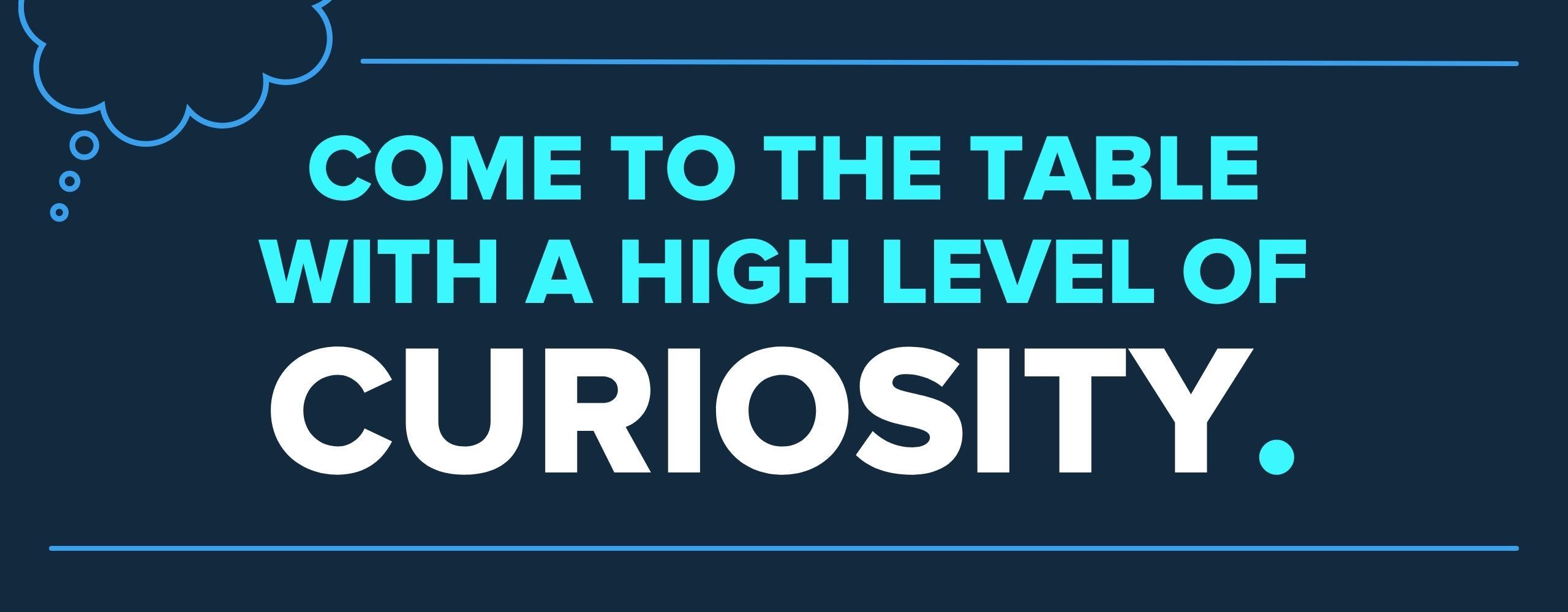
Not only does listening further show clients that you care, it allows them to speak freely and uninterrupted so you can learn and understand more about what they're going through and where they need guidance.
Come to the table with a high level of curiosity.
Instead of making assumptions about your clients’ needs and telling them what to do, help them find the answers for themselves by asking strategic questions.
It's easy to fall into the habit of guiding a conversation, so start by asking diagnostic questions, such as, “How is your day going?” rather than “Are you having a bad day?” These let your clients answer more openly.
Also, instead of giving advice right-off-the-bat when presented with a problem, ask your client what they would do. This encourages them to reflect upon what they've learned and practice being self-sufficient.
Often, they will already know the solution, they just need a push to uncover it.
In all of this, remember to get comfortable with silence. When you ask more questions and do more listening than talking, clients may be caught off guard and not know what to say.
As hard as it may be, let this happen. Once again, it encourages them to dig deeper and lead the conversation.
One skill the most effective coaches master is the ability to stay at a higher level with clients and focusing on the big picture goals.
Help your clients keep focused on the tasks that will yield long-term success.
If your client is releasing videos on TikTok every day with no views, but not hitting their website traffic goals, you can step in to refocus them.
This helps them keep their "eyes on the prize" when they may be getting distracted by less important or effective things.
On the flip side, thinking big-picture also forces your clients to take ownership of the specific solutions they put into place. They have to brainstorm strategies that will actually work towards their goals and how to execute on them.
This sets the precedent that your clients are the ones who need to put in the work and you are there to guide them, not to do the work for them.
In every client-coach relationship, there is always someone taking direction and someone giving direction.
If your client is in an authoritative position, you may find yourself struggling with being told what to do. This is a precarious situation to be in as a coach or consultant, as your role is to be an advisor.
To be a successful coach, you need to learn how to coach from a place of authority — meaning you are the one giving the direction, and your client respects what you have to say.
You want clients to work hard and put in the time it takes to improve themselves and their business, but it’s much more difficult to do that if they don’t respect your authority or council.
The point is not to establish hierarchy or feelings of superiority, but rather equal respect. They small habits may save you from constantly having to prove your value or convince your client to follow through.
One of the biggest skills the greatest coaches exhibit is a strong sense of self-awareness. As we started this article saying, no one is perfect.
You need to be honest with yourself about how adept you are in certain areas and where you need to improve. What are your strengths? What are your weaknesses?
You need to be as willing to learn as your clients in order to grow and improve.
Start by asking a peer, manager, or teammate for candid feedback. Gathering outside perspectives may open your eyes to shortcomings you are unaware of and give you ideas for where you can start improving.
Most coaching relationships don't last forever. In fact, if you're a good coach, they shouldn't.
Your job is to help your clients become self-reliant and learn how to accomplish their goals on their own.
Having vast marketing and sales knowledge to share and being able to solve problems are given as a coach or consultant, but the six skills we mentioned above will help take you and your clients to the next level and truly make an impact.
.jpg?width=1280&height=720&name=Larger%20blog%20graphics%20(2).jpg)
IMPACT has trained hundreds of coaches and marketing agencies around the globe on how to improve their clients’ results and be more profitable with our Certified Partner Program. Want to learn more? Meet with one of our coordinators.
Whether it’s a sales call, a performance review, or a client meeting, the quality of the outcome is only as good as the conversation you have. And your conversation will only be as good as the questions you ask.
Questions are your superpower in communication. They are the tool you use to get to the heart of the matter, to prompt real reflection, and to induce candor.
But despite their power, we often squander our chances to ask great questions, instead reverting to the default, useless questions we’re used to.
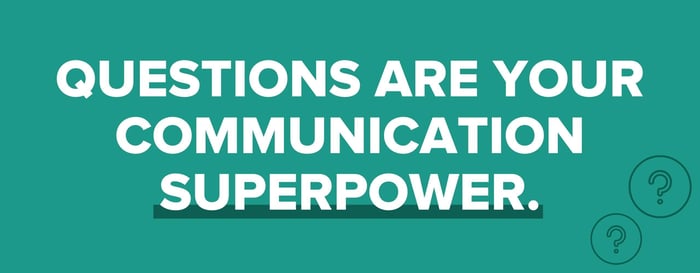
Every day, millions of professionals mess this up — and ruin their chances of having more productive conversations.
Enough.
It’s time to replace ho-hum, run-of-the-mill questions with super-power, stop-on-a-dime questions that do what they’re designed to do.
Let’s explore how.
The comedian Steve Martin once said that “How’s everybody doing tonight?” is the worst line in the history of stand-up comedy — and a gigantic wasted opportunity every time it’s used.
He explains it like this: You’re a comedian coming out on stage with a blank slate. You can do anything. Anything.
That first line is a chance to take the audience by surprise, to completely change the narrative. But that chance gets wasted. Most of the time comics phone it in and do the same old tired opening — and get the same old tired response from the audience.
And the opportunity is gone.
But as businesses, we fall into the same trap.
Walk into a store. Someone comes up to you and says, “Can I help you?”
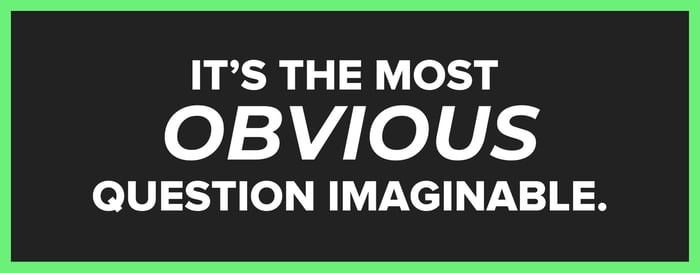
It’s the most obvious, rote question imaginable. We’ve all heard it hundreds of times before and so we almost always respond with our default answer: “No. Just looking. Thanks.”
What a wasted opportunity.
What a lost chance for a brand to build a connection with a potential buyer.
Now, think about the same situation as a business owner. You’ve got a potential new customer walking into your store. Don’t let their experience start with the same useless question they hear everywhere else.
Even something as simple as “Have you been in our store before?” snaps the visitors out of their autopilot response and creates the start of a conversation.
The professional world is filled with useless placeholder questions that we use out of habit.
We need to retrain ourselves (and the people we manage) to recognize opportunities to insert better questions into their interactions so the conversation becomes richer and more meaningful.
Now keep in mind, better questions don’t have to be more complex. In fact, they’re usually simple — but they’re intentional and specific, making them succeed in the ways the other questions fail.
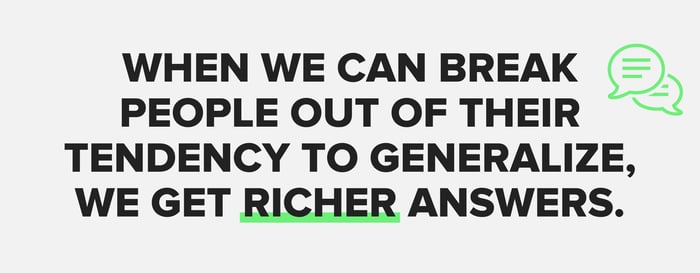
Below, I’m going to focus on three common business scenarios and explain the ways that obvious, useless questions have snuck in and diminished our chances for rich conversation.
Sales meetings are the frontline of your business’s future. Like the greeter when someone walks into a store, your salespeople are often the first people your buyers interact with, which means they have the responsibility of the first impression.
Too often, we cloud meetings with the same useless questions that sound more like a checklist than honest conversation starters.
You know what I mean. Questions like these:
These are obvious and unhelpful because they spark meaningful conversation. They’re superficial, answered with half a sentence.
Instead, ask simple, clear, specific questions that prompt real thought and real dialogue:
Think about what makes these questions better. Yes, they’re specific and clear. But the biggest thing is this: They don’t prompt an automatic answer. When questions can be answered without much thought or reflection, they lose their power.
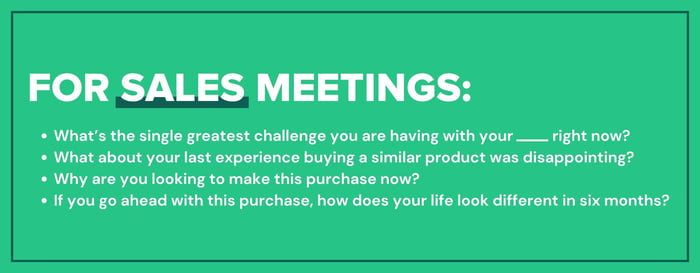
When you prompt self-reflection in your potential customers, you help them start to understand their own challenges in a way they might not have before. In doing so, they build a trusting relationship with you.
Now, let’s think about performance reviews.
For the sake of this example, I’m considering a performance review a regular (but infrequent) meeting between a superior and a worker in which evaluative feedback is given.
Just like a sales conversation, this is a meeting between two people, but performance reviews have two major differences from sales meetings:
All the more reason to be sure to not waste the opportunity to ask great questions.
There are plenty of well-intended-but-not-totally-helpful questions that we use in these situations. They often sound like this:
There’s nothing wrong with them, per se, but they don’t really prompt dialogue. They’re formulaic and obvious. Like in our sales meeting example, a better tactic is to be more pointed to prompt someone to think deeper.
Notice the move toward specificity.
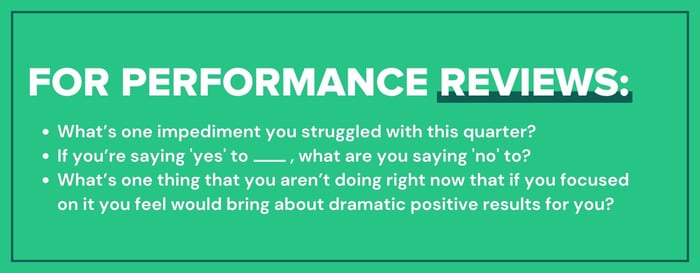
When we can break people out of their tendency to generalize, we get richer answers. And that’s the first step toward a conversation that’s beneficial for both parties.
In a service-based business, we meet with clients to set course, determine priorities, and chart progress.
To do this well, you’ll need to lead candid conversations that can sometimes touch on sensitive topics.
While the nature of these conversations can vary widely, the questions you ask should all employ the same tactics: specificity and objectivity.
Unhelpful questions include:
Great questions in this context include:
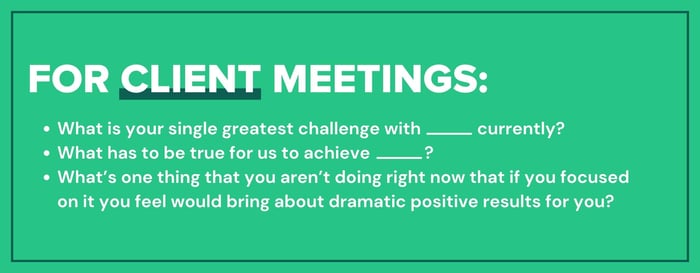
Once again, we see that great questions are open-ended but specific — and they avoid pressuring the person to respond in a certain way.
Asking great questions is as much about what you say as it is about how you say it. Your tone of voice, body language, and timing are vital to asking great questions.
There are times when silence will do more than any question. There are other times when a great question posed at the wrong time can easily become the wrong question.
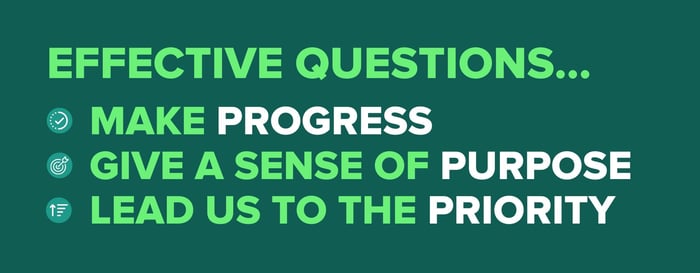
And like everything else in the modern workplace, it all comes back to relationships.
Imagine the same question posed by your best friend or posed by the worst boss you ever had. In one case, you’d be open and honest. In the other, guarded. Maybe even offended by the intrusion.
With all that in mind, here’s a quick cheat sheet for how to ask great questions no matter what situation you’re in:
Great questions are:
Keep those in mind and fight against your default tendencies and you’ll turn great questions into your everyday superpower.
Ensure your visuals look their best by aligning with the correct image dimensions for each app.
I have spent the better part of a decade (and my career for that matter), marketing for a marketing agency. How’s that for meta?
As a marketer, I can’t say this is what I originally saw myself doing and, in theory, it seems like it would be relatively easy — marketing marketing.
But the truth is, inbound marketing for an inbound marketing agency presents its own unique set of challenges and hurdles to jump.
Many of the questions are the same as with any business.
How can I best reach my audience? How can I get them to convert?
But on top of this is the not-so-sweet cherry of knowing your audience may already be hip to your strategies.
All that being said, inbound marketing for an agency can be done and, more importantly, it can be done creatively and effectively.
For over a decade, we have done this for ourselves successfully and helped agencies all over the world do so as well. In this article, I’ll help you understand how.
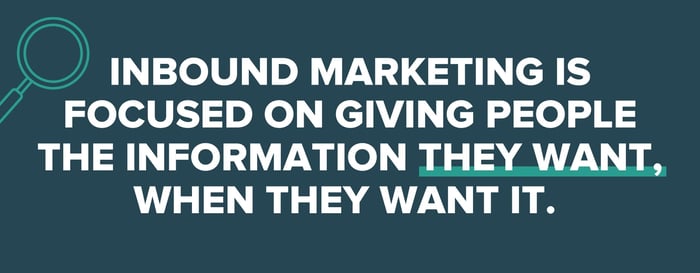
When customers are thinking about making a purchase, they usually start by gathering information — and they don’t want to have to talk to a salesperson to do this.
Enter inbound marketing.
Simply put, inbound marketing is an approach to digital marketing focused on giving people the information they want, when they want it.
Marketing used to be disruptive. It was billboards on the side of the highway or print ads in between the content in magazines people actually were looking for.
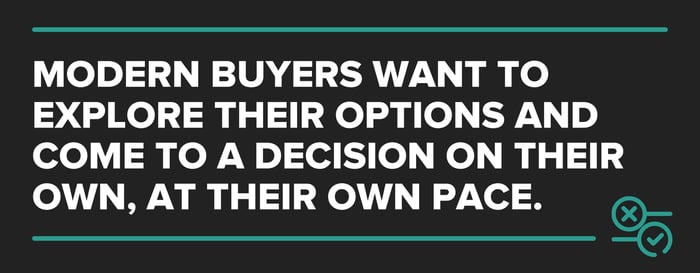
Modern buyers aren’t as responsive to these traditional or outbound marketing methods anymore. Today, they want to learn. They want to explore their options and come to a decision on their own, at their own pace.
Knowing this, it should come as no surprise to learn that 59% of shoppers say they use Google to start researching a purchase they plan to make in-store or online at a later time. In fact, the majority of B2B consumers report consulting at least three pieces of online content before making a purchase.
If your business takes the time to create quality content that provides the answers and information your target market is looking for, that target market will begin to trust you as a helpful resource, and in turn, they'll be more likely want to buy from you.
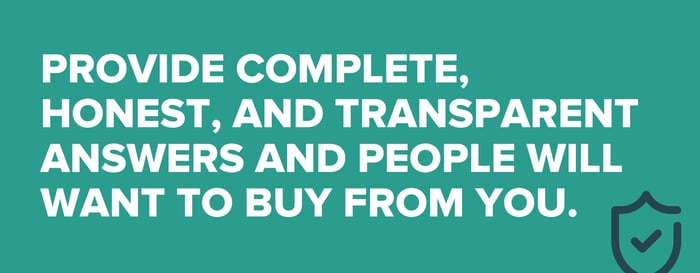
This is the essential belief behind most inbound marketing strategies.
IMPACT partner and author Marcus Sheridan has even built an entire framework around this premise in his book They Ask, You Answer, but what does this look like for an inbound agency?
If you’re a marketing agency, your target audience is likely looking for answers on how to generate leads and best market their business.
They’re also likely subconsciously (or even consciously) evaluating how you market your own agency as an example of what you can do for them.
So, you have to put your best foot forward.
Ideally, here’s how inbound marketing works for an inbound marketing agency, or for any business really.
Through search engine optimization (or perhaps social media marketing), potential customers find your brand and website and consume your content.
From there, they explore your content and brand and "raise their hand" to be contacted by you — perhaps by following you, subscribing to a newsletter, filling form or landing page to get an offer, or maybe even shooting you a private message on social media.
From here, you can nurture them closer toward wanting to speak to sales or make a purchase through content. This could even include email or even paid ads.
Great inbound marketing relies on several different mediums and tactics to be successful, but it all begins and is fueled by one thing — content.
When it comes to inbound marketing, at IMPACT we’ve found it’s most effective to start by creating content that answers the most pressing questions your buyer has in their purchase journey.
Regardless of your product or industry, these questions tend to be the same. For example, customers usually wants to know about the cost of all of their options. They want to know how much they are going to spend and that they are making the right decision for themselves.
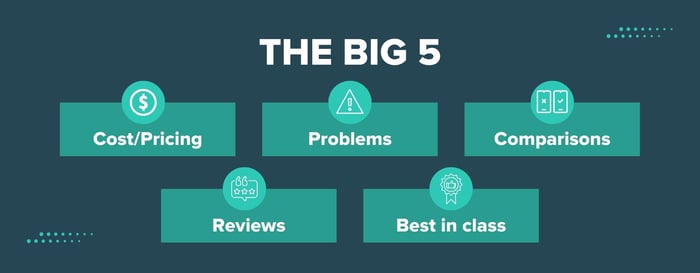
They Ask, You Answer groups the most common content topics into a framework called The Big 5:
Because all buyers want answers to these same questions, these five categories can serve as the first structure of your inbound marketing strategy.
The content you use to attract buyers can take many forms — articles, videos, infographics, podcasts, social media posts, and webinars, among many others.
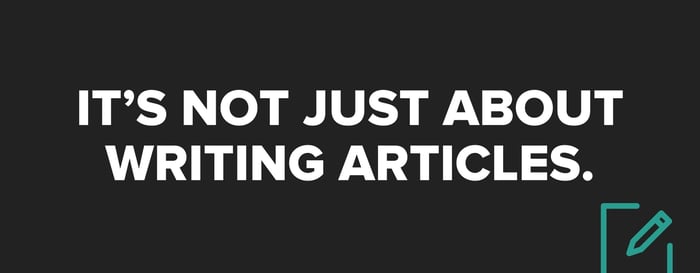
Today, buyers want their content to be as easy and convenient to consume as possible. For some, this might be a video. For others, it’s text.
An effective inbound marketing content strategy makes use of multiple digital marketing mediums, and what this mix looks like will depend on your needs, staff, industry, and of course, your buyers’ unique preferences.
Now that you know what inbound marketing entails for an inbound marketing agency, let’s take a look at some examples.
Since inbound marketing for an agency can take many forms, we'll use The Big 5 to narrow our focus.
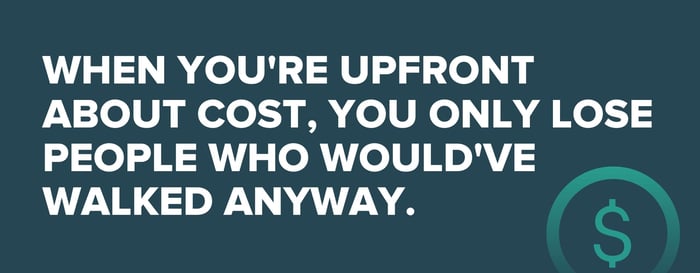
Cost is a touchy subject for many businesses. They worry that if they list their price, they may scare people off.
But the reality is, when you avoid talking about price, you end up scaring off more people. They assume they can't afford you or leave because they don't want to jump through hoops just to get a quote.
When you're upfront about cost, you only lose people who would've walked anyway.
Creating content around price or cost shows your audience that you are an open and honest business. You’re not trying to hide any information or trick someone into a phone call for an ambush sales pitch.
Yes, you may have fewer conversations, but the people you do speak to will be better informed about what they’re getting into and more likely to actually be ready and able to afford your product or services.
Inbound marketing agency Lean Labs does a great job of addressing cost/price creatively on their website with a pricing calculator.
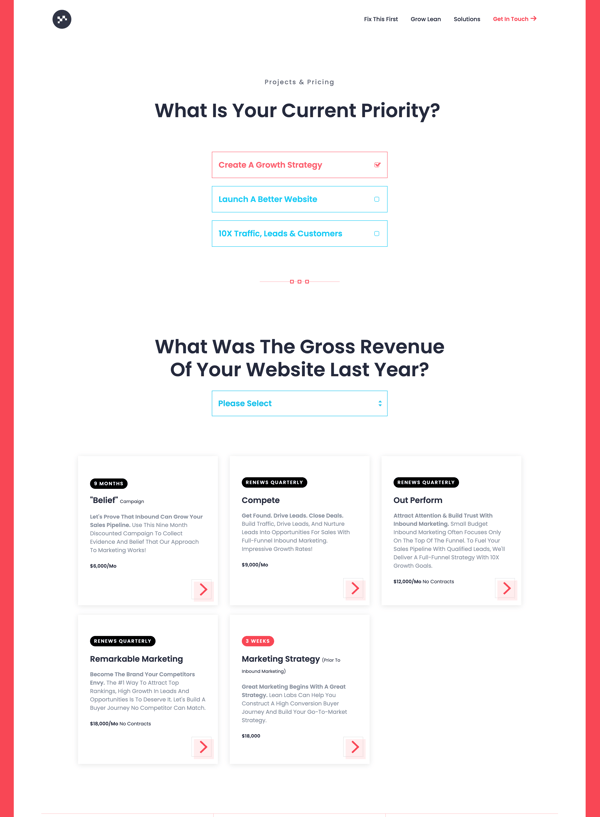
With two simple questions — What is your current priority? What was your gross revenue last year? — the agency is able to point the visitor to three packages with an approximate timeline, price tag, and brief description to help them gauge if this is a realistic option for them.
Like cost, many inbound marketing agencies fear that discussing the problems or shortcomings of their offerings will also scare people off, and it makes sense. After all, why should you tell people the reasons not to buy from you?
But once again, this conversation comes back to trust and helping people make the best decisions for themselves.
Discussing the problems with your product or service ahead of entering a sales conversation avoids poor-fit customers signing on, as well as setting unrealistic expectations that can lead to poor reviews or experiences down the line.
In this example, our partner Red Pandas shares common problems with one of their key offerings, inbound marketing.
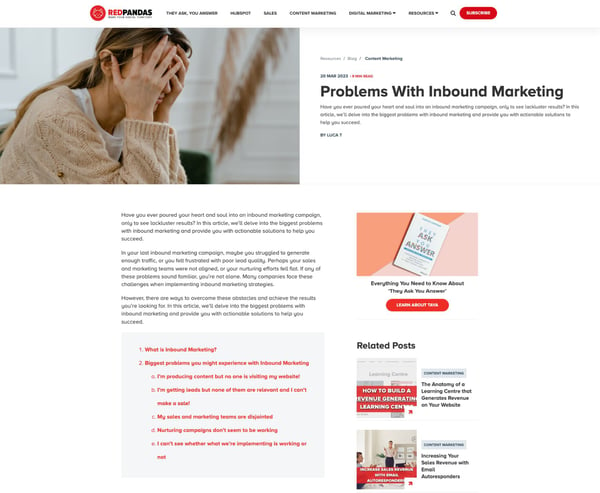
This is a skillful way to discuss “negatives” because while they are honest about the problems, they also share solutions.
As buyers are evaluating their options, they often like to directly compare their top choices to see how they stack up against each other.
That’s where comparison content comes in handy.
Impulse Creative does a great job with its inbound marketing efforts here, publishing a piece comparing working with an in-house marketing team and a marketing agency like them.
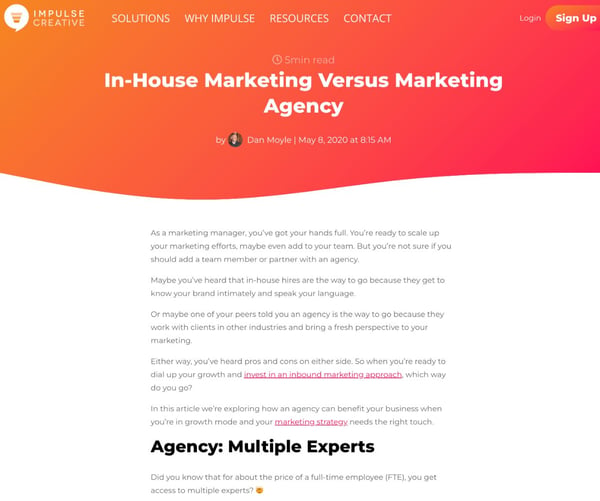
The agency zeroes in specifically on the team makeup and resources at your disposal with each option, but comparison articles can also go deeper into things like cost or specific features.
Another approach to a comparison article you can take is to directly compare products you sell versus their alternatives.
In this example from Salted Stone, we see the agency compare website hosting on HubSpot to WordPress.

You can check out more great examples of comparison content here.
According to TrustPilot, around 89% of consumers say they make the effort to read reviews before buying products online.
Rather than letting them find that information from a competitor or third-party website, write candid, thorough reviews on your website to rank and get found in search engines when prospects are looking for them.
Like comparisons, these can be about you, your competitors, the products you sell, or the alternatives to the products you sell.
Here at IMPACT, we published a detailed review of the HubSpot CRM.
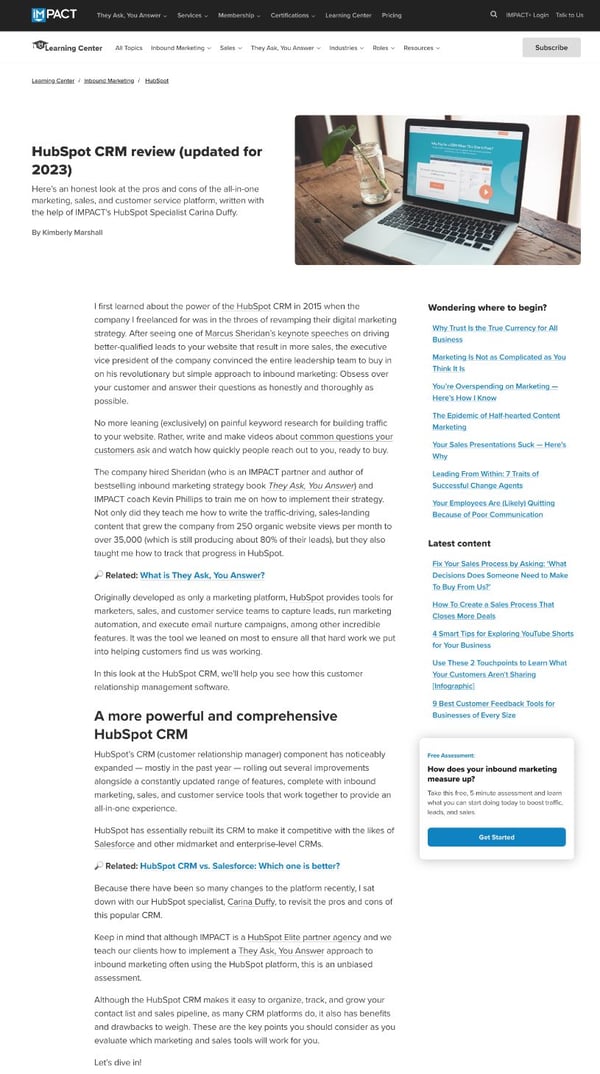
As a HubSpot Diamond Solutions partner, the HubSpot CRM is one of the tools we promote and encourage marketers to use. However, in this article, we put that bias aside to give people an honest reflection on the benefits and shortcomings of the tool.
What are my best options?
This is a common question that crosses someone’s mind when making an important purchase, and by creating content about the “bests” in your industry, you can grab their attention and trust with a helpful answer.
There are a few approaches to “best of” articles you can take.
The first is a simple “top 10” list-style piece. Once again, Lean Labs does a great job with its content, this time discussing what it considers the top seven inbound marketing agencies (aside from themselves).
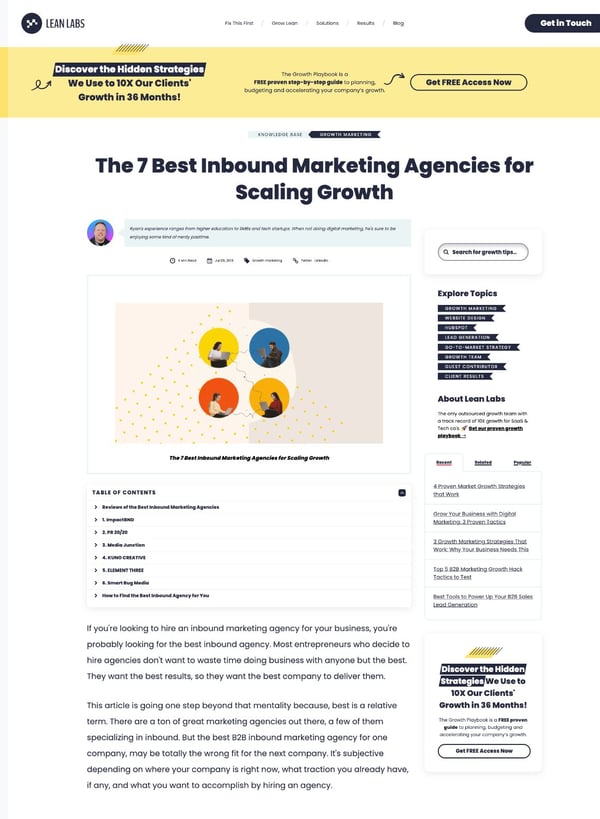
This builds trust by showing that the agency recognizes that they may not be the best match for everyone and by actually providing alternatives should a reader find themselves in the position of needing to hire an inbound marketing agency.
You can also create “best” content that shares examples for inspiration or education.
Our friends at BluLeadz take that approach here, creating an article sharing great mission statement examples:
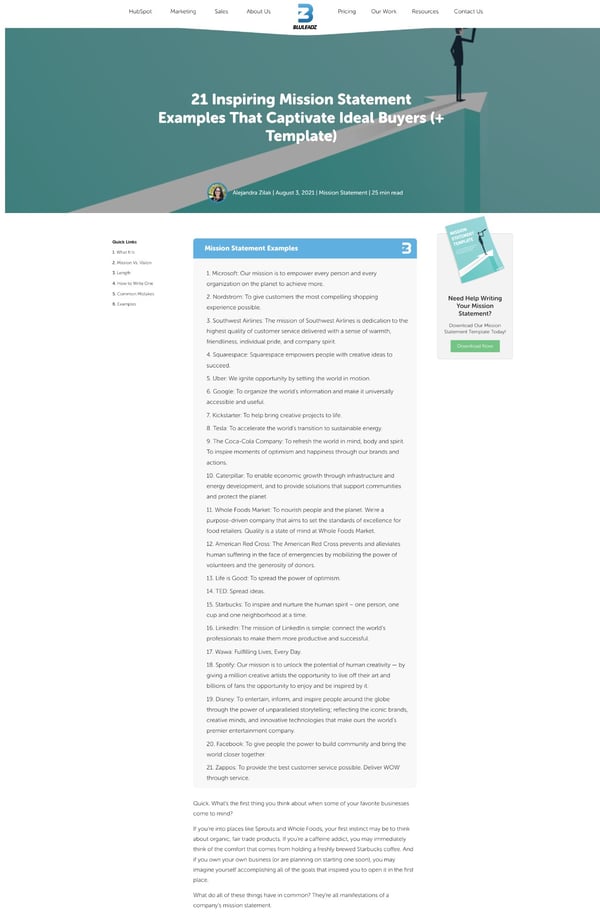
Be your own best case study
One of the biggest signs of integrity is practicing what you preach, and no one should understand that more than an inbound marketing agency.
The inbound marketing methodology is a powerful tool for driving traffic, generating leads, and filling your sales pipeline, but when your service is based on accomplishing this for others, you need to make sure you’ve mastered it for yourself first.

This is true whether you’re actively executing an inbound strategy for your clients or teaching them to do this on their own as a coach.
As a digital sales and marketing training company, we at IMPACT pride ourselves on helping business grow sales and their results overall by bringing their marketing operations in-house.
We also help agencies become more profitable, improve client results, and improve employee turnover by adopting a coaching model as well.
Interested in learning more about how to become one of them? Talk to one of our advisors about our Certified Partner Program.
The sender will have the option to approve or deny any message keep requests.
The change was implemented as Twitter removed legacy blue ticks.
You want to run a promoted tweet campaign, you'll need to be a paying subscriber.
The more IMPACT teaches, trains, and assists organizations with their content marketing efforts, the more I realize that nothing great ever seems to occur unless there is a superstar behind the wheel within the organization – and in most cases, this person is referred to as the content manager.
But what skill sets should you be looking for, especially if you’re seeking to fill this position within your company for the first time?
Here at IMPACT, we've helped hundreds of companies hire content managers. Below, I'll detail the 10 essential qualities to look for when you're making this hire.
But first, let's cover exactly what your content manager will do for your business.
The core duty of your content manager is simple: serve as a bridge between your company experts and your buyers.
Content managers interview company subject matter experts and turn that knowledge into article and website copy that site visitors can access. At the same time, the content manger can also produce sales enablement resources like buyer's guides and case studies for your sales team to use with customers.
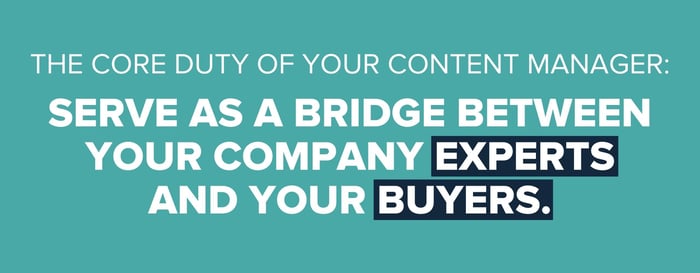
To do this, the content manager will maintain your publication calendar and track your website traffic, making sure both get the attention they need so you can accomplish your business goals.
Depending on your individual needs (and the skills of your content manager), they make take on other duties such as:
to name a few.
So, what skills do you need to hire for? Let's dive in.
Content managers come in all shapes and sizes. Whether they're an industry veteran, a professional from another field, or a recent graduate, look for these 10 vital skills to be sure you're getting someone who will fourish in the role.
This one goes without saying, but it’s a big deal. And remember, “writing” online isn’t just about fancy words. It’s about clean communication — done in a way so that just about any reader can understand what’s being said.
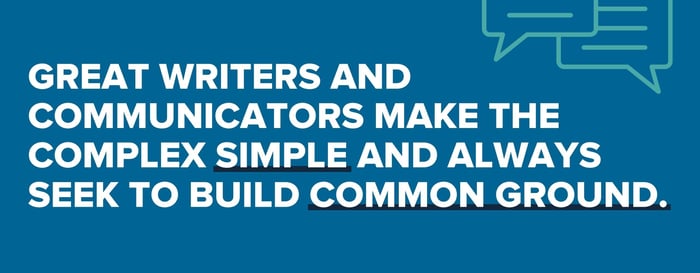
As I always say, great writers and communicators don’t try to sound smart, which is never the goal of content marketing. Rather, they make the complex simple and always seek to build common ground. And it’s these qualities that make them great.
🎓 IMPACT+ course: How to hire a content manager for your company
When companies leverage their existing employees to produce text and video content (insourcing), the initial product can at times be rough.
But great content managers can take what is a “5” in terms of quality and make it a “9” or “10”— doing their best to make the original source as clear and concise as possible for the reader.
This is huge.
Subject matter experts are spread out all over companies: Salespeople, product designers, customer service, leadership, and more.
A great content marketing manager understands how to sit down with these people and ask the right questions to stimulate content that teaches, helps, and informs readers.
🔎 Related: How to assess the interviewing skills of a content manager candidate
One of the most common challenges we hear when clients first come to us is that sales and marketing aren't on the same page – and I'm willing to wager that more than a few of you reading this can relate to that.
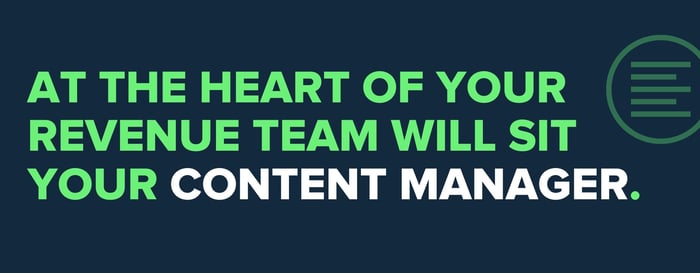
Heck, we dealt with this challenge ourselves at IMPACT, which is why went out of our way to bring everyone together – sales, marketing, and leadership – with something called a revenue team
At the heart of your revenue team will sit your content manager. But their success (and yours) will come down to how genuinely willing and enthusiastic they are to roll up their sleeves and work hard to empower your sales team with the content they really need to close more deals faster.
OK, I'm adding this one in even though we advise all of our clients that you can no longer have a content manager and a videographer housed within one person. To be successful and committed to video in the way we all need to be now as businesses, you really need to have your own videographer in-house.
That being said, if your content manager is your first hire, it's always a good idea to look for someone who is comfortable, at least to some degree, with video – video filming, editing, and performance. That way, you can get started creating video while you're still making that other critical videographer hire.
Moreover, once that videographer is on-board, they can collaborate more easily with your content manager if the latter has some video chops.
I know this one is hard to quantify, but hear me out. Your content manger will sometimes need to be a pest. They'll be scheduling frequent interviews, asking for feedback, collaborating with coworkers, and more.
They need to be likeable.
A content manager should be easy to say yes to.
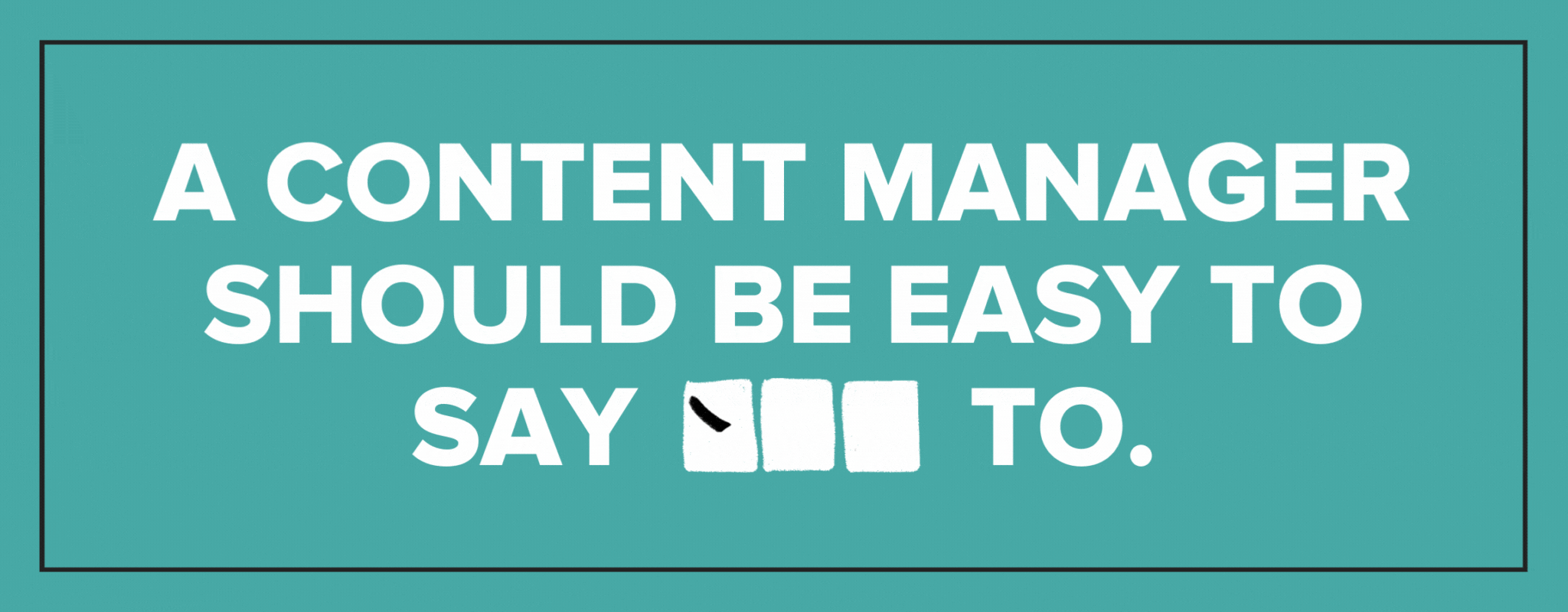
They should come in with a smile and brighten up the day for everyone around. As Liz Wiseman says in her book Impact Players, they should "make work light."
The best content managers I've seen have high emotional intelligence.
When it comes to using employees as sources of content, knowing how to get those employees motivated and inspired is critical.
The best content managers know how to inspire and motivate employees to contribute to the company’s marketing and sales goals.
Content marketing, when done in businesses of any size, needs to be organized. The content manager needs to keep things straight and build processes for work to get done on time.
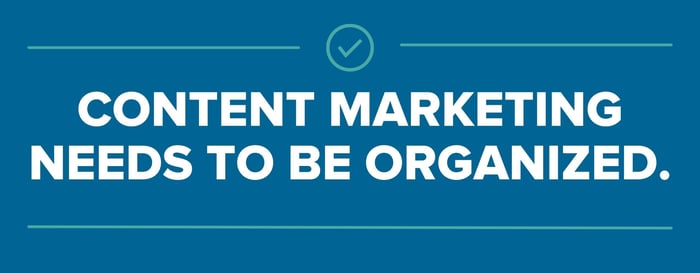
This starts with a main editorial calendar and continues with newsletters, trainings, interviews, and more.
We've worked closely with many business owners on their content marketing over the past twelve years, and we keep seeing the same simple trend – those who pay attention to the numbers get way better results much, much faster.
Content managers need to be skilled with a suite of tools like Google Analytics, Semrush, and HubSpot.
While they don't necessarily need to have this knowledge one day one, they need to love analytics and data.
Look at the greatest content marketing examples and I’ll show you creativity and unique thinking every time. Fact is, the best ones in this industry aren’t looking for a set of “rules” or a “road map” that tells them exactly what they need to do next.
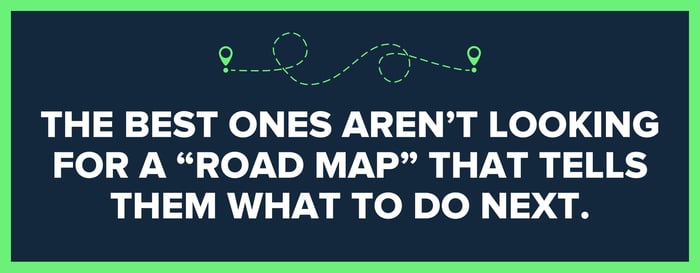
Instead, they just get stuff done — however they possibly can, and often with some serious creativity acting as the catalyst to success.
So that's my list. Anything you think I should add? Social media acumen? Familiarity with AI?
Considering everything on this list, it should be no surprise that we often see clients hire journalism grads and English majors. They have the writing and interviewing skills down pat — and they are usually quick studies picking up the rest.
So as you look for your new content manager, think outside the box. Don't just look for those with industry experience. Find the ambitious storyteller who's ready to learn and jump in with both feet. That's the one who will supercharge your sales and marketing efforts.
As Google moves to phase out cookies, its developing a range of alternative solutions.
The proposed Online Safety Bill would force providers to maintain oversight of all user communications.
The new X UI is coming. * This article was originally published here How to make $1000/day with affiliate marketing 24/7 - start here! ...